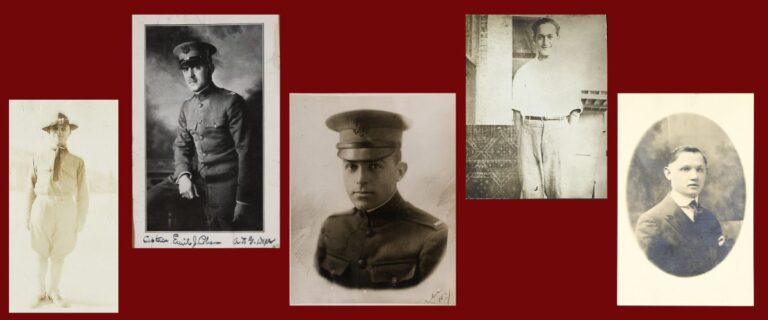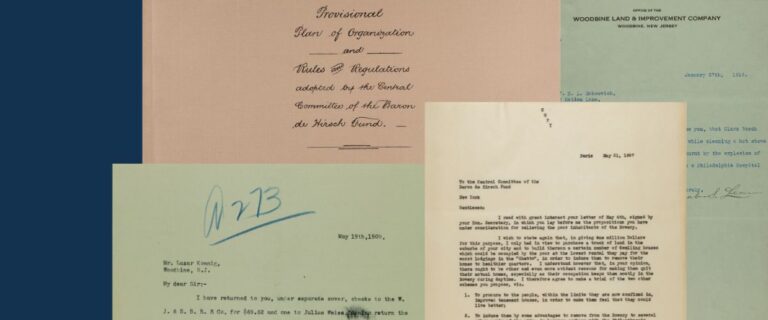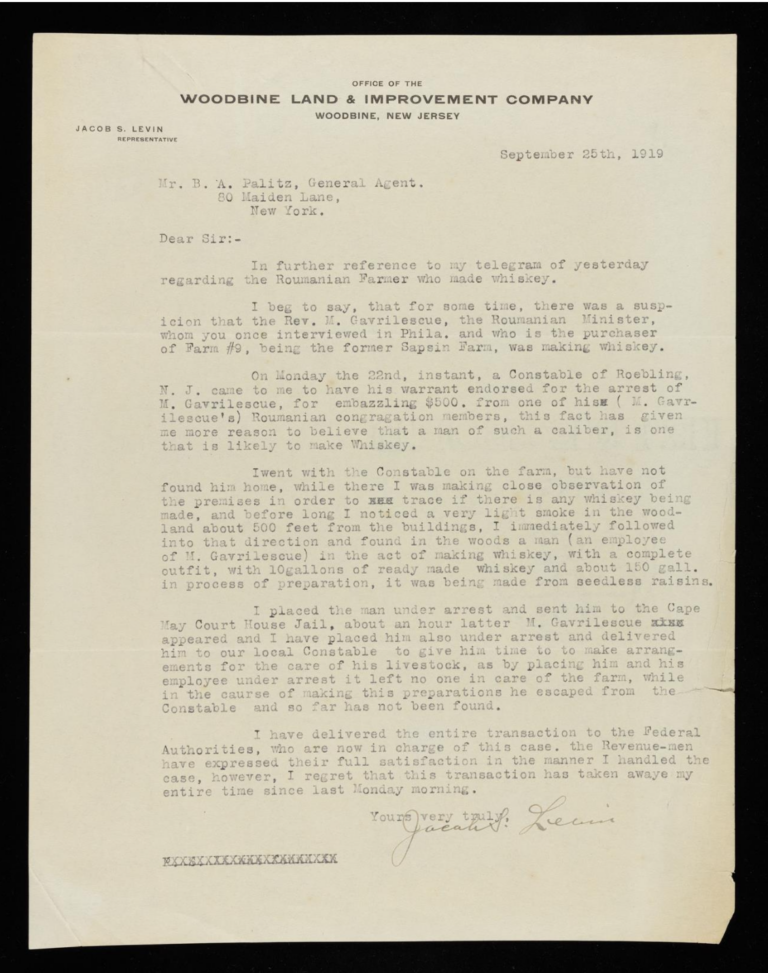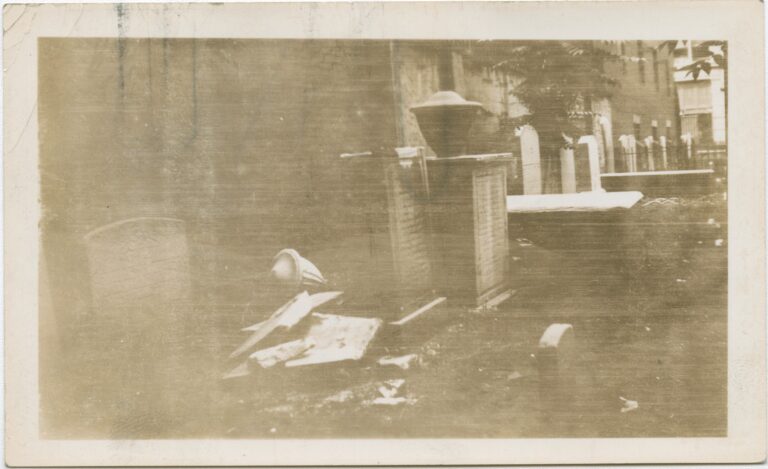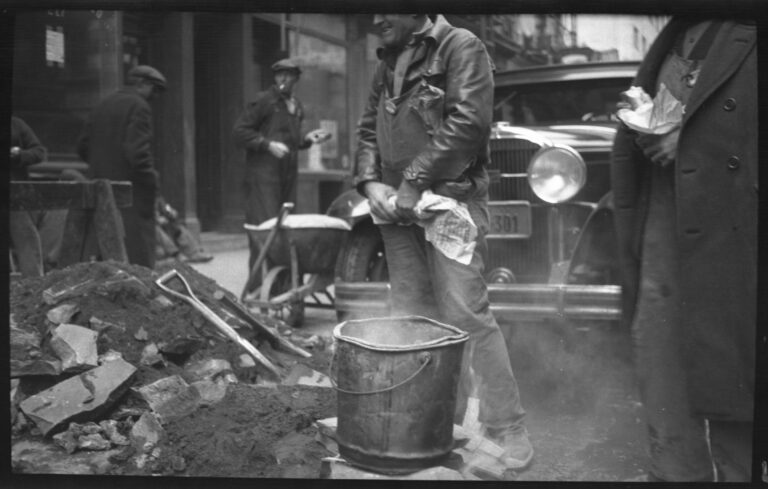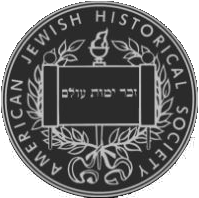The Baron de Hirsch Fund – founded in 1891 by Clara and Maurice de Hirsch – supported Jewish immigrants upon arrival in the United States by preparing them for new careers in skilled trades. With a strong emphasis on agriculture, the Fund established the Woodbine Colony in southern New Jersey in 1891, followed by the Woodbine Agricultural School in 1893. The Colony soon outgrew its original footprint of just 800 acres, leading to Woodbine’s incorporation as an independent borough in 1903. Such rapid expansion left the Fund with no choice but to invite outside industries into the borough, transforming the small agricultural community into a center of industrial manufacturing.
During the multi-year process of digitizing the Records of the Baron de Hirsch Fund, documents which may have been formerly overlooked offered a glimpse into the daily lives of the Borough’s residents. While these types of records are typically appreciated by researchers for their informational value, they do occasionally provide the viewer with some unexpected entertainment.
One example from 1909 involves an argument between the Fund, the Mayor, and a man with a moving picture machine. The letters seen here tell the story Mr. Katz, who took it upon himself to purchase a “moving picture machine” (or a film projector) and build a tent in which to screen the moving pictures. Of course, there were concerns about the potential effects of such a “detrimental feature” on young minds, but this conundrum presented an even greater threat to the safety of the children of Woodbine: Mr. Katz needed approval from the mayor to run electrical power to the tent, or else risk the dangers of a gasoline powered machine. After much debate, an Agent of the Baron de Hirsch Fund proposed a solution on which all parties agreed: the motion pictures would be censored by the Mayor of the Borough and the Principal of the Public Schools. We can only hope they had good taste.

Woodbine, N.J. Sep. 3rd 1909
In re Moving Picture- Joseph Katz
Prof. H.L. Sabsovich, New York City
Dear Sir:-
Mr. Joseph Katz applied for the use of power to operate a moving picture machine in Woodbine on Adams Ave. near De Hirsh Ave. Mr. Katz put up a tent where the moving pictures will be shown. He got a permanent permit from the Mayor to run this business.
While I, personally, believe that it is not a necessary and rather a detrimental feature in a small town where the children or the younger people will spend their time at a show which is not always elevating and instructing, we cannot prevent it as long as they have a permit from the Mayor of the Borough. Should we refuse the supply of electrical power they will use a gasoline machine which is dangerous and may result fatally if any accident should happen.
It, therefore, seems to me that it is advisable to supply them with the necessary electricity so that they will not use gasoline. Of course, the electrical apparatus, as I am told, is perfectly safe. It will be some distance away from the tent where the children will be seated.
Kindly advise.
Yours very truly,
B.A. Palitz
Superintendent
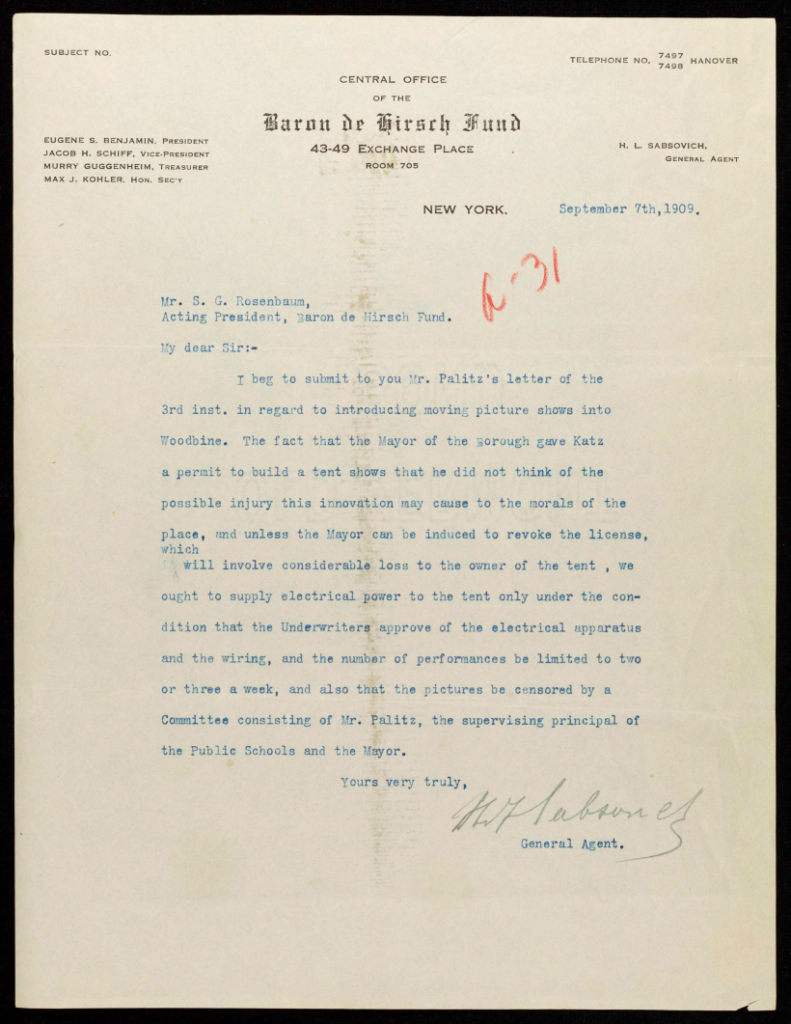
New York, September 7th, 1909
Mr. S.G. Rosenbaum,
Acting President, Baron de Hirsch Fund.
My dear Sir:-
I beg to submit to you Mr. Palitz’s letter of the 3rd inst. in regard to introducing moving picture shows into Woodbine. The fact that the Mayor of the Borough gave Katz a permit to build a tent shows that he did not think of the possible injury this innovation may cause to the morals of the place, and unless the Mayor can be induced to revoke the license, which will involve considerable loss to the owner of the tent, we ought to supply electrical power to the tent only under the condition that the Underwriters approve of the electrical apparatus and the wiring, and the number of performances be limited to two or three a week, and also that the pictures be censored by a Committee consisting of Mr. Palitz, the supervising principal of the Public Schools and the Mayor.
Yours very truly,
H.L. Sabsovich
General Agent.
The full digitized records of the Baron de Hirsch Fund (I-80)) can be accessed here.



